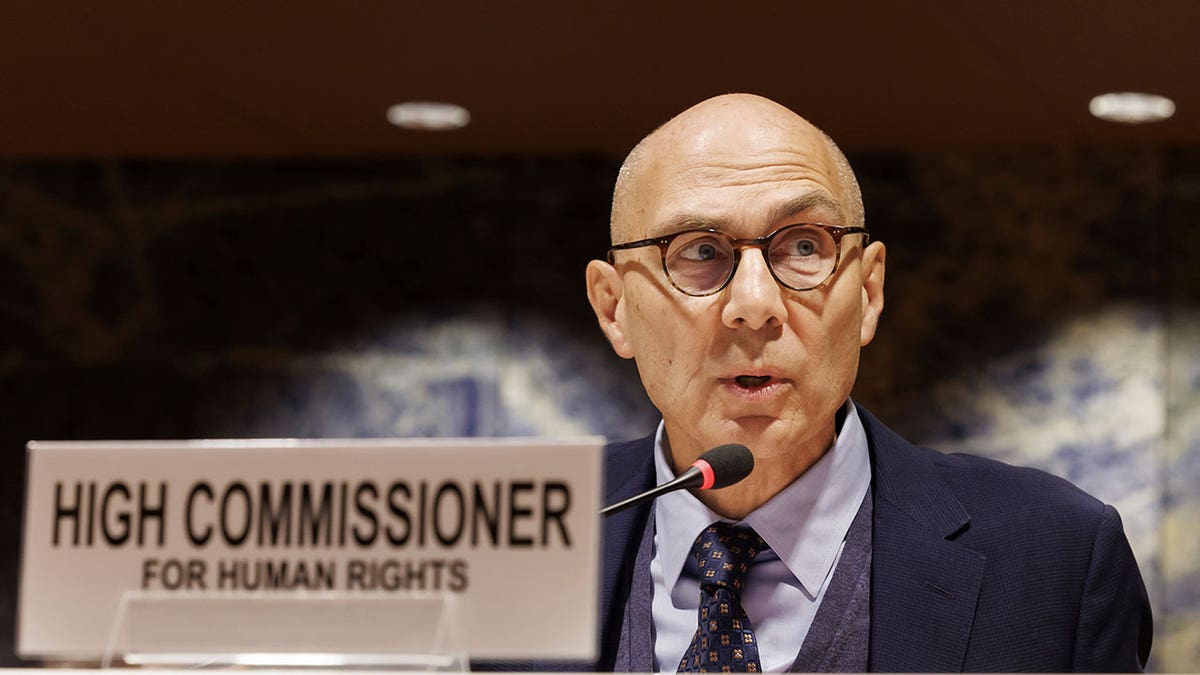Volker Türk urged US authorities to ensure universal voting rights, referencing discriminatory voting policies
US vetoes proposed cease-fire measure at the United Nations
Fox News foreign correspondent Trey Yingst reports on the U.S. vetoing a proposed United Nations resolution calling for a cease-fire in Gaza on 'The Story.'
- The U.N. human rights chief, Volker Türk, has urged for a swift end to the suppression of independent voices in Russia.
- Volker Türk voiced concerns about the persecution of opposition leader Alexei Navalny, who died in prison.
- Türk also criticized increasing restrictions on rights defenders, journalists and critics in India.
The U.N. human rights chief called Monday for a quick end to the "repression of independent voices" in Russia and expressed concerns about the "persecution" of opposition leader Alexei Navalny, who died in prison last month.
Volker Türk, in a wide-ranging speech, also lamented dozens of conflicts around the world, widespread violations of human rights law that have impacted millions, and displacements caused by war, which could escalate in places like the Middle East, the Horn of Africa and Sudan.
"Rarely has humanity faced so many rapidly spiraling crises," he told the Human Rights Council.
Alluding to some countries among the dozens holding national elections this year, Türk denounced "increasing restrictions" on rights defenders, journalists and "perceived critics" in India. He urged U.S. authorities to ensure that voting is universal, alluding to discriminatory policies that restricted the right to vote for people of African descent.

U.N. High Commissioner for Human Rights Volker Türk speaks at the European headquarters of the United Nations in Geneva, Switzerland. The U.N. human rights chief called on March 4, 2024, for a quick end to the "repression of independent voices" in Russia and expressed concerns about the "persecution" of opposition leader Alexei Navalny, who died in prison last month. (Salvatore Di Nolfi/Keystone via AP, File)
In the run-up to Russia's presidential elections from March 15-17, Türk said Russian authorities "have further intensified their repression of dissenting voices" and noted how some candidates "have been prevented from running due to alleged administrative irregularities."
He said Navalny's death in a Russian prison last month "adds to my serious concerns about his persecution" and noted how thousands of politicians, journalists, human rights defenders, lawyers and others have faced criminal or administrative charges for having "simply spoken their minds on social media."
Türk called for a swift and comprehensive review of all cases where people in Russia were detained for exercising fundamental freedoms, and "an immediate end to the repression of independent voices and the legal professionals who represent them."
"The future of the country depends on an open space," he said. March’s vote in Russia is all but guaranteed to see President Vladimir Putin, 71, cement his place in power until at least 2030.
Türk spoke out against the perception of "racially motivated" police activity in some Western countries and called on China to revise a criminal procedure law and the "vague offense of ‘picking quarrels and making trouble’" in one of its articles.
"I urge the release of human rights defenders, lawyers and others detained under such legislation," he said.
